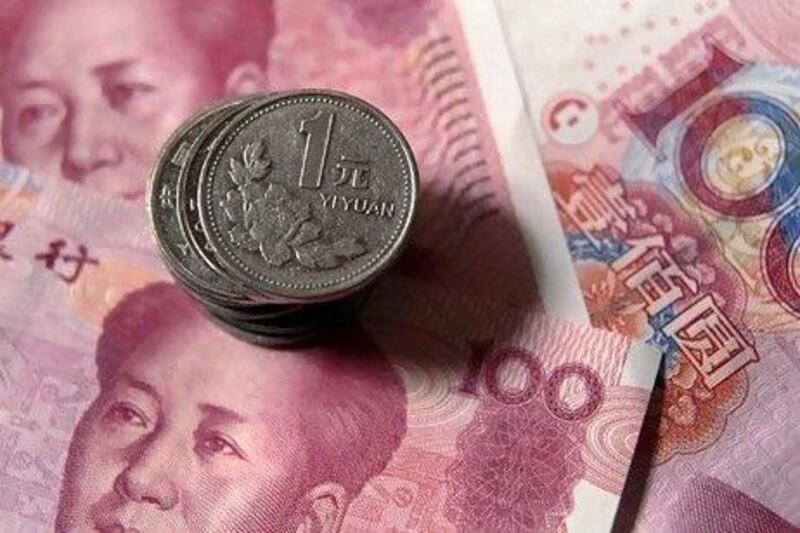The Chinese yuan is accelerating on its path to becoming fully convertible and could rival the euro and dollar within the next five to seven years, according to HSBC, the Europe's biggest bank.
Finance in Focus: More money news
Bankers fear repeat of 2008 meltdown Credit squeeze already under way in Europe likely to affect lending to businesses in Gulf. Read article
Gulf likely to feel blows hitting euro-zone banks UAE banks may have avoided direct exposure to the troubled countries at the heart of the eurozone debt crisis - but the banking crisis now engulfing European lenders presents equal problems, bankers said. Read article
A crisis that could 'eclipse the Depression' Are Europe's banks heading for the end of the world as we know it? Such a catastrophe would be felt here in the Gulf, writes Rupert Wright. read article
HSBC has been attempting to steer clients in the Middle East towards business accounts denominated in the yuan since July, and has opened between seven and 10 accounts a week for UAE clients seeking to settle trades with Chinese clients.
The new impetus for an alternative reserve currency comes as debt worries engulf the euro zone and the US.
"We're so fixated on the crisis in the West, but the Chinese are doing something very exciting and very new," said David Bloom, HSBC's global head of foreign exchange strategy.
Two weeks ago, restrictions were lifted on Chinese companies seeking to import using the yuan.
"Now every company in China can use the [yuan] to import," said Nick Levitt, HSBC's head of commercial banking in the UAE. "Anyone trading with China has to start thinking about this seriously."
However, restrictions remain on the conversion of foreign currencies into yuan - meaning yuan can be traded for US dollars but not vice versa - restricting its appeal.
Mr Levitt said Middle Eastern petrochemicals companies, raw materials producers and hotel companies were among those expected to take greater interest in the yuan as a currency for trade settlement.





